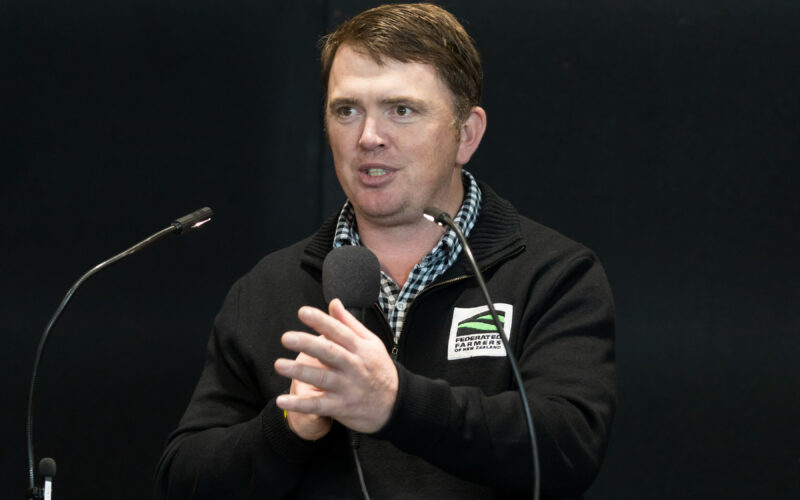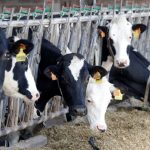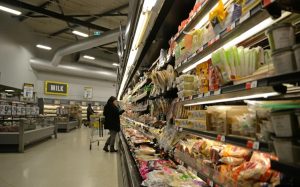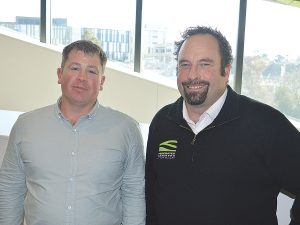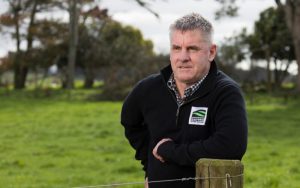
Lobby group welcomes NZ’s decision to disband HWEN, emphasising fair and affordable climate policies for the agricultural sector.
Federated Farmers have welcomed a decision to immediately disband the failed and untenable He Waka Eke Noa partnership.
On the eve of National Fieldays, the Government announced it will be removing agriculture from the New Zealand Emissions Trading Scheme (NZ ETS).
He Waka Eke Noa has been shown the door, to be replaced by a new pastoral sector group to constructively tackle biogenic methane.
Federated Farmers president Wayne Langford says the Labour Party’s He Waka Eke Noa process failed miserably and needed to go.
“The previous Government were too focused on pricing farmers, driving blindly towards unachievable, political, unscientific methane reduction targets,” Langford says.
“There was a complete disregard for the significant and unjustifiable costs this would place on hardworking farming families and the wider New Zealand economy.”
He says Federated Farmers would never accept a plan that would see 20% of sheep and beef farms, and 5% of dairy farmers, priced out of existence.
“We have three firm bottom lines when it comes to climate policy: that methane targets are reviewed; that viable and cost-effective tools are available for farmers; and that no emissions leakage occurs,” Langford says.
“We made it clear from day one that we were unwilling to compromise on those bottom lines.
“As soon as it became clear He Waka Eke Noa wasn’t going to be able to meet those bottom lines, we walked away from the negotiating table.”
Langford says it’s great to see those three things explicitly reflected in the Government’s June 11 announcement.
“That gives us a lot of confidence for the future.”
Agriculture Minister Todd McClay says the primary sector worked collaboratively for years, but Labour rejected many of its proposals, “compromising consensus, relationships, and confidence across rural New Zealand”.
Cabinet’s decision to formally disestablish He Waka Eke Noa with immediate effect would restore confidence, McClay says.
“It’s time for a fresh start on how we engage with farmers and processors to work on biogenic methane.”
To do this, the Government will engage directly with levy bodies and sector organisations representing the pastoral sector: Federated Farmers, DairyNZ, Beef + Lamb New Zealand, Deer Industry New Zealand, Dairy Companies Association of New Zealand, and the Meat Industry Association.
The Government says it will invest further in research and development to create practical tools to help lower on-farm emissions while protecting production.
Climate Change Minister Simon Watts says the Government has committed $400 million over the next four years to accelerate the commercialisation of tools and technology.
That includes increasing funding for the New Zealand Agricultural Greenhouse Gas Research Centre, which will receive an extra $50.5m over the next five years. Projects include the development of a methane vaccine; breeding lower-emissions cattle; and accelerating work on methane and nitrous oxide inhibitors.
Langford says it’s great to see the Government clearly acknowledge that Kiwi farmers will need tools and technology to reduce emissions without reducing production or exports.
“The Government have also acknowledged that it makes no sense to send jobs and production overseas, while less carbon-efficient countries produce the food the world needs.”
Langford says the Government have already publicly committed to a review of the current unscientific methane reduction targets later this year.
Establishing the new pastoral sector group presents an opportunity for a fresh start for discussions about climate policy and biogenic methane, he says.
“We look forward to discussing this further with the Government as Terms of Reference are developed.”
Associate Minister of Agriculture Andrew Hoggard says it’s critical New Zealand’s efforts to cut emissions don’t harm our local agricultural sector.
“Agriculture is the backbone of our economy and maintaining its profitability is pivotal to boosting our GDP, raising the standard of living, and providing the high-quality public services Kiwis deserve,” Hoggard says.
Meanwhile, Associate Minister of Agriculture Mark Patterson says, by working closely with the sector, the Government will ensure consumer expectations are met and that we continue to lift New Zealand’s sustainability credentials.
“This Government will future-proof our export growth to ensure the success of dairy and sheep and beef farmers who produce high-quality protein, which is sought after by customers all over the world,” Patterson says.
Langford says Federated Farmers will continue to advocate strongly on behalf of grassroots farming families and rural communities for climate policy that is fair, scientific and affordable.
Ahora puedes leer las #noticias más importantes en los canales de #Whatsapp de #eDairyNews!!
🇲🇽 eDairy News MÉXICO: https://whatsapp.com/channel/0029VaLDr0G4SpkLXxDY3t2x
